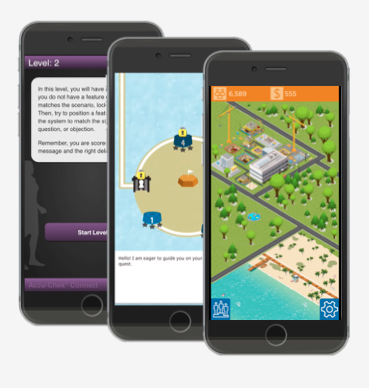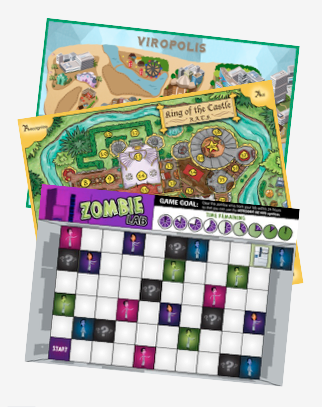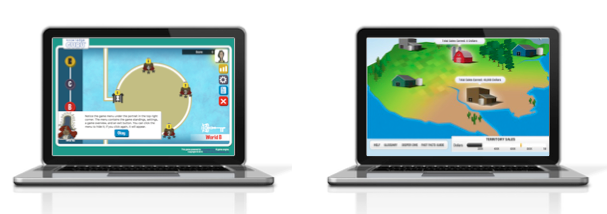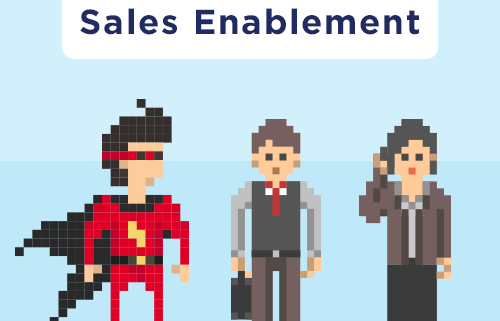How Games Drive Sales Enablement (Webinar)

When game elements are carefully linked to learning objectives, good things happen. And when the games are designed or chosen based on the characteristics of target learners, great things happen. This is why so many sales training professionals have started to implement games into their sales enablement programs. They’re interested in going much further than a quick energizer activity. Today’s sales trainers are pairing games with mobile reinforcement and microlearning to help sales reps be successful.
And while many of our customers use the Knowledge Guru platform for sales enablement, it is not always the right type of game-based solution for the learning need. Games are seldom the only learning solution required, either. Most sales enablement programs use blended learning to combine games, mobile, eLearning, video, roleplay and in-person coaching.
Three Broad Categories of Games
Most game-based learning will fit into one of the following categories:
Mobile Games

Mobile games are often used as part of live events for application practice as well as for microlearning and reinforcement.
Board Games

We use board games to encourage team discussion, foster collaboration to achieve goals, provide application practice and/or provide recall practice.
Online Computer Games

Online computer games work great for application practice, pre-work for live events and post-training reinforcement depending on learners’ device of choice.
Many Different Types of Games
There are many different game elements to choose from, depending on the learning need. If you’d like to learn more, Sharon Boller has written a white paper showing how different game elements link to the four elements required for learning to happen.
For example, Knowledge Guru games use game goals, challenges and reward structures and story to increase learner motivation.
Game-Based Learning Best Practices
No matter what type of game you are incorporating into your learning curriculum, you’ll want to follow these best practices.
- Design game to meet specific learning objectives.
- Focus the game on more than winning/losing.
- Embed learning within curriculum; include reflection activities.
- Get learners comfortable with rules and game play before starting – or build in tutorial guidance.
- Keep rules, scoring, and leveling simple.
- Create ways for learners to work in groups or teams.
- Match cognitive activities in the game to the cognitive activities required on the job.
- Make sure winning is the result of knowledge or skill acquisition – and not chance.
- Plan for replay-ability; you want repetition and you want people to be able to try again.
- Keep rules, scoring, and leveling simple (Yes, this is a repeat!)
Learn More in our “Sales Enablement and Beyond” Webinar
The recording of our “Sales Enablement and Beyond” webinar features a global product launch case study where Knowledge Guru was used along with a variety of custom games. It also includes tips for linking games to learning and implementing games as a learning strategy.





